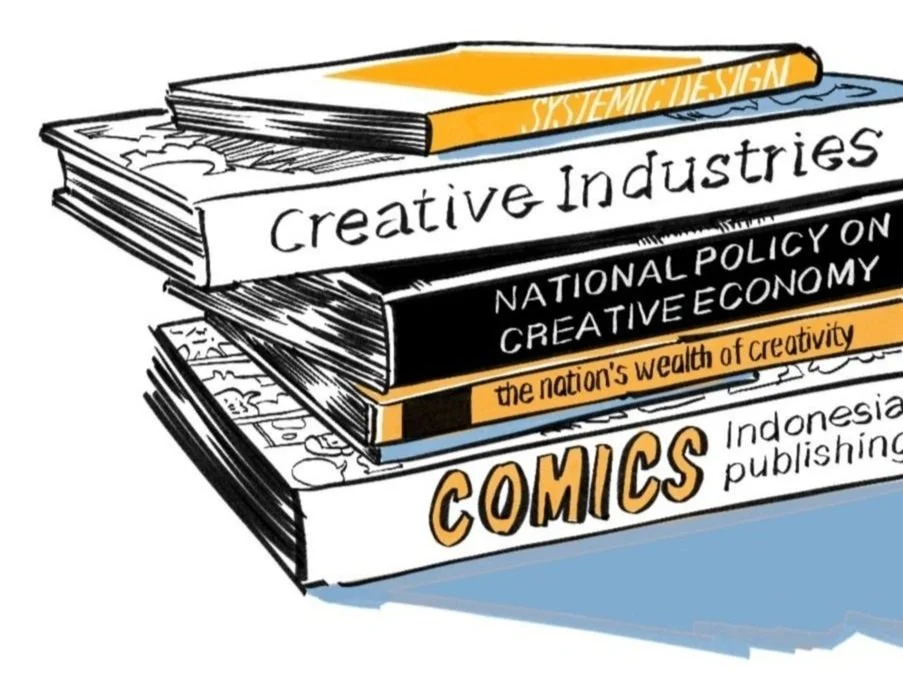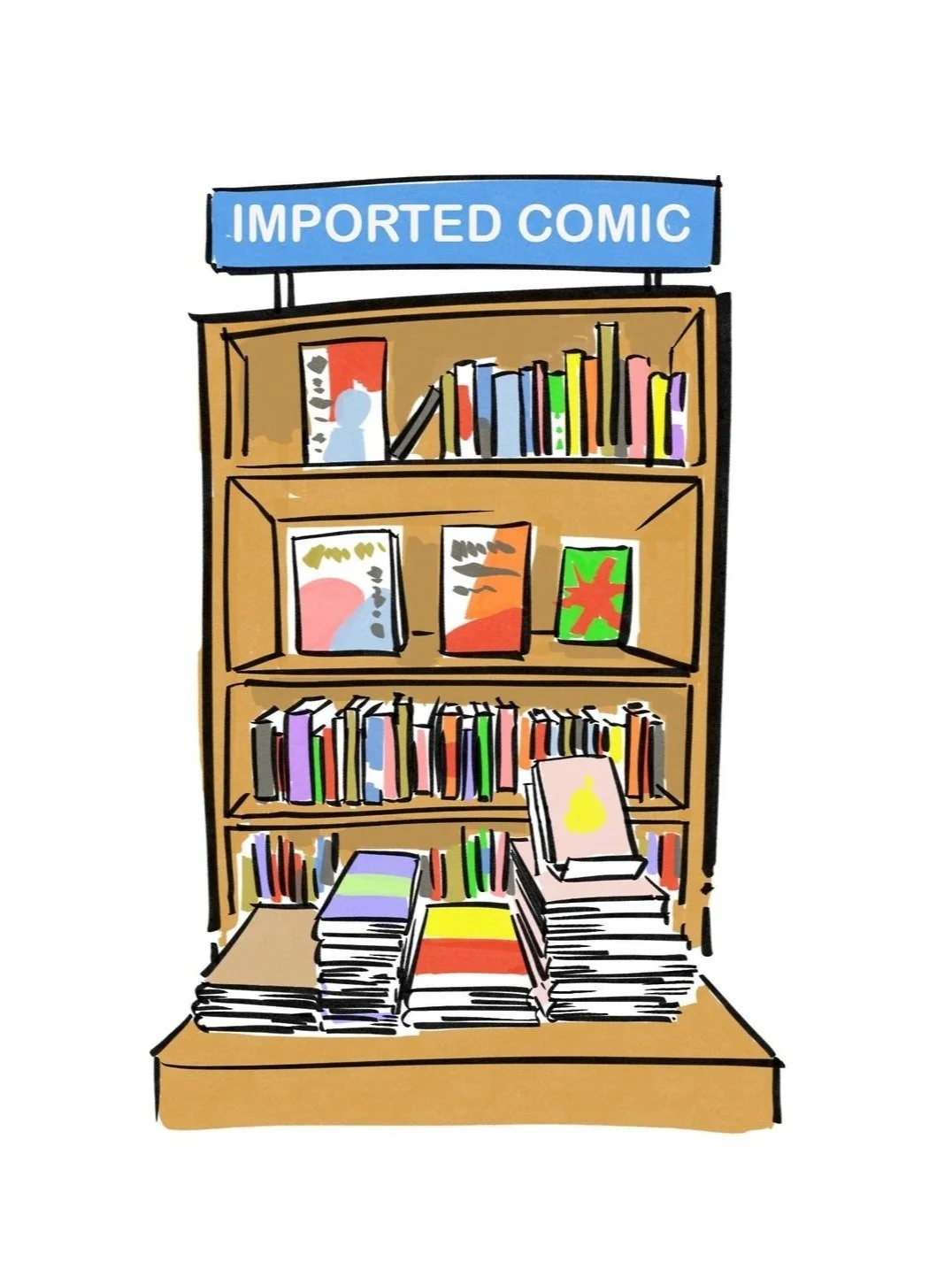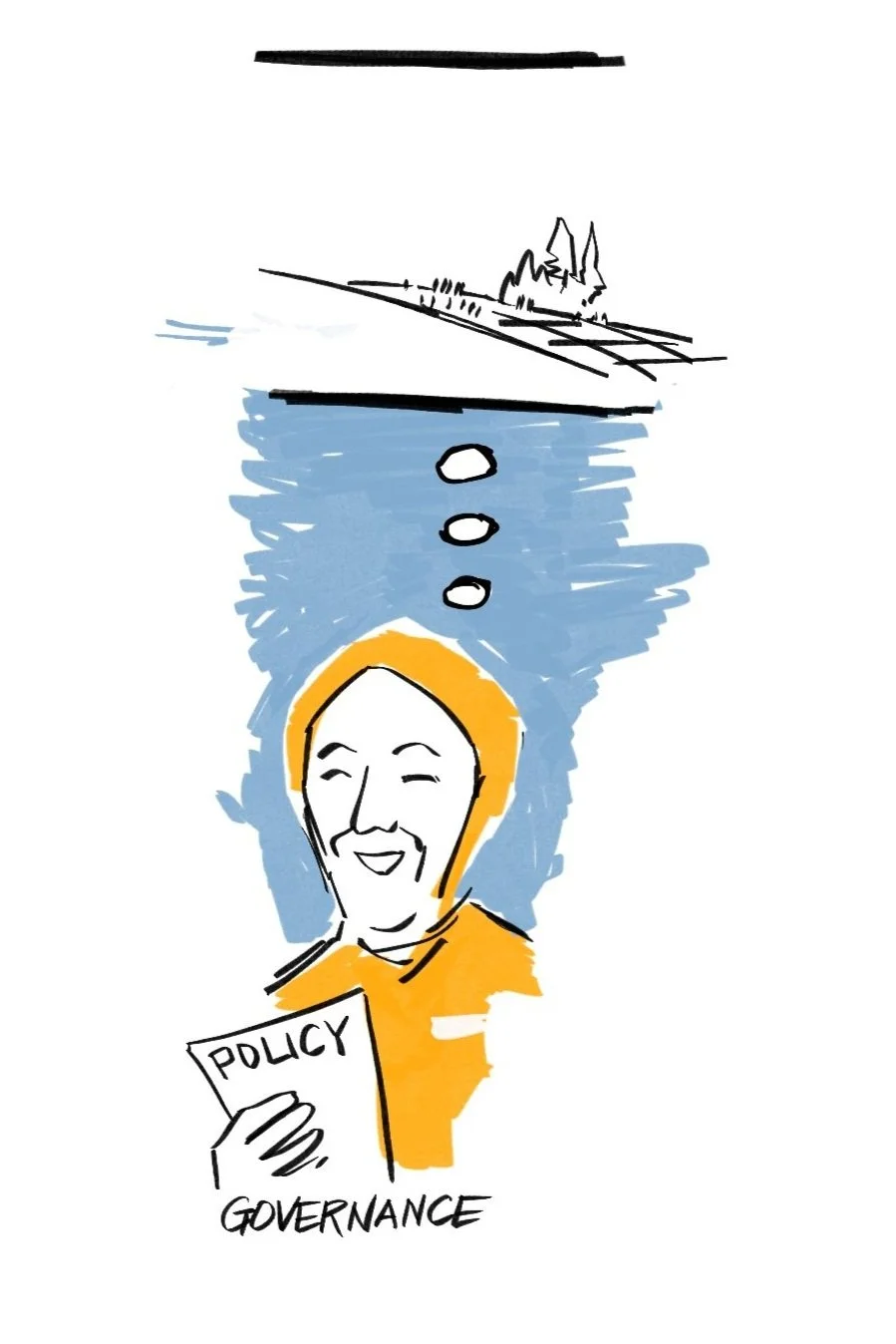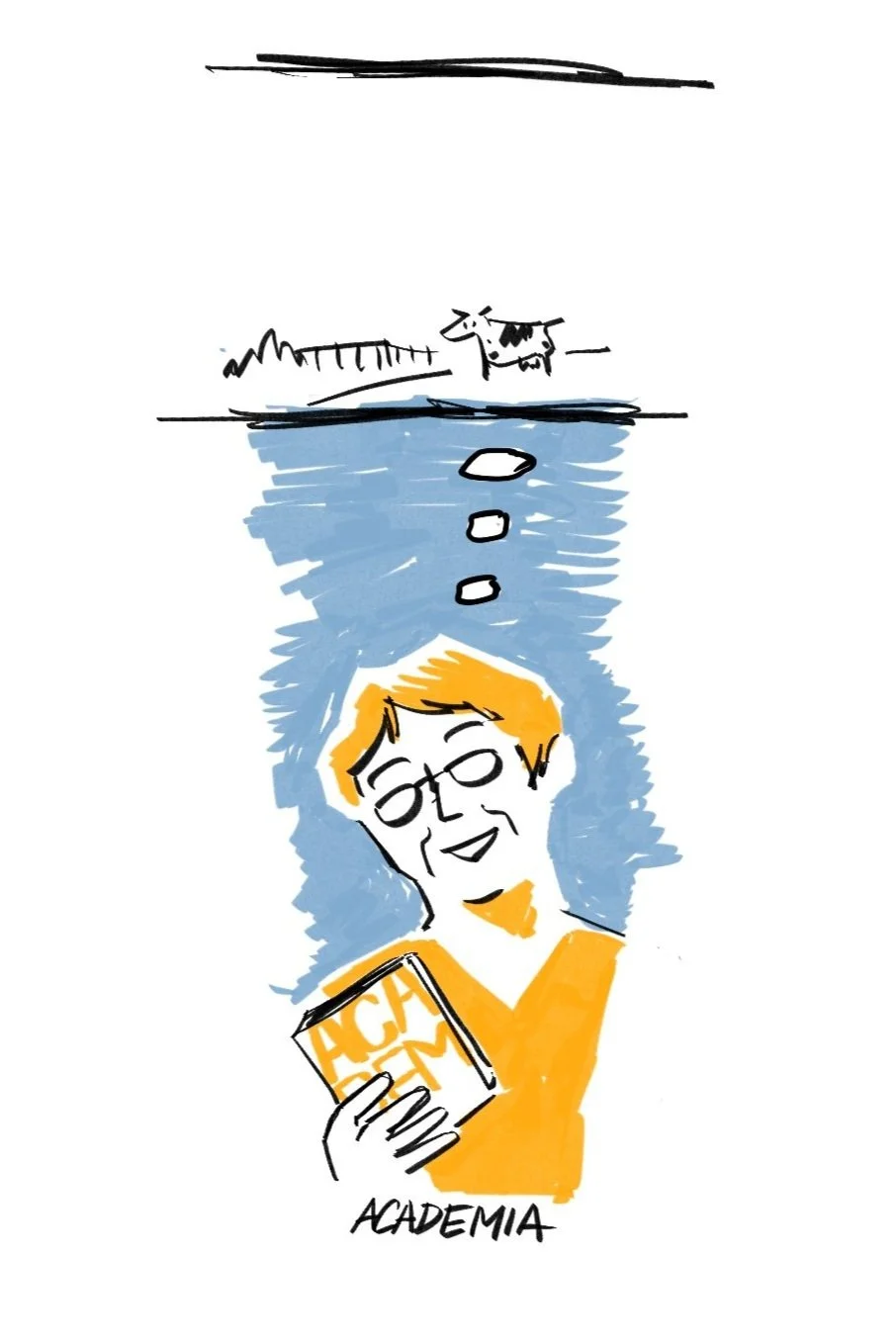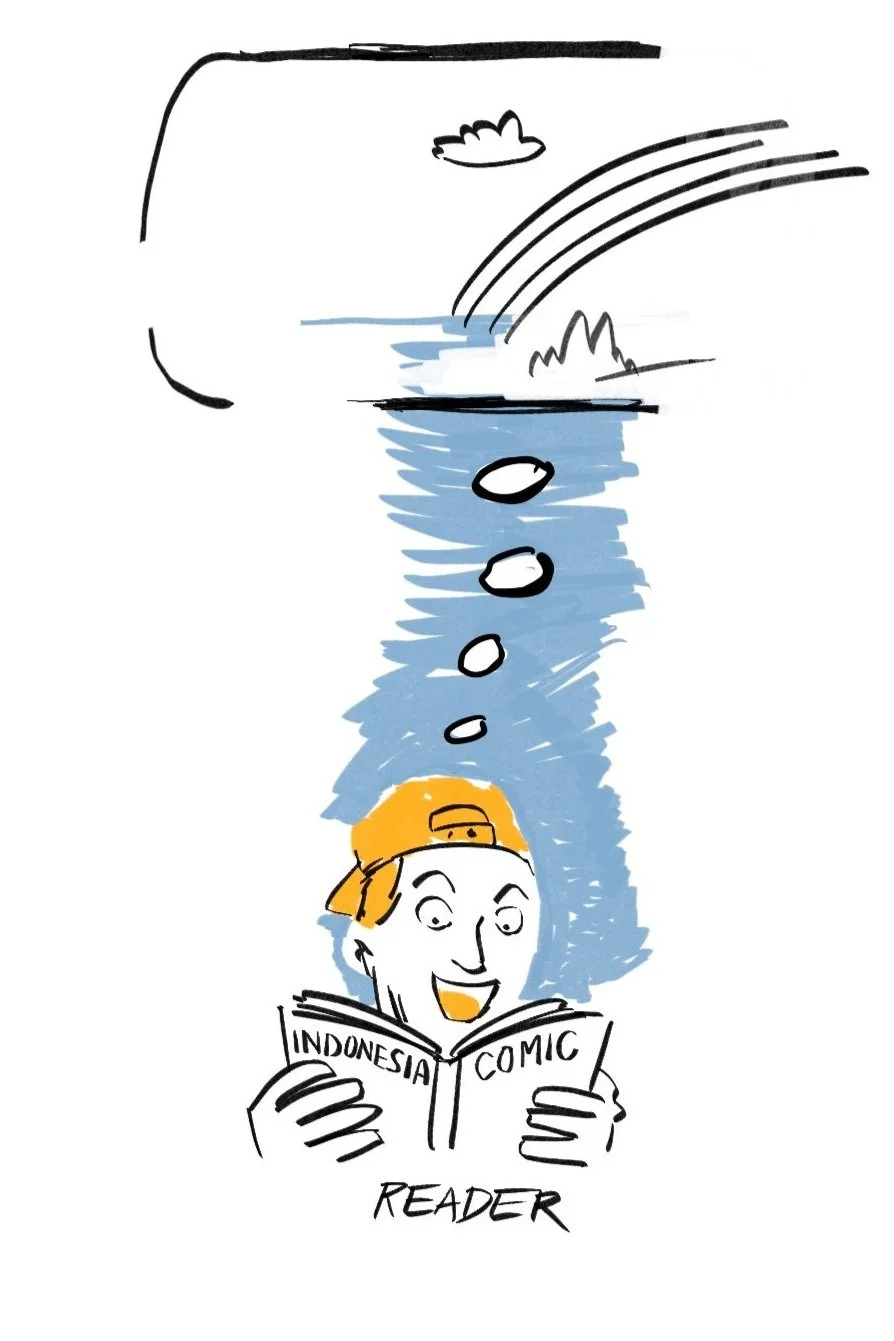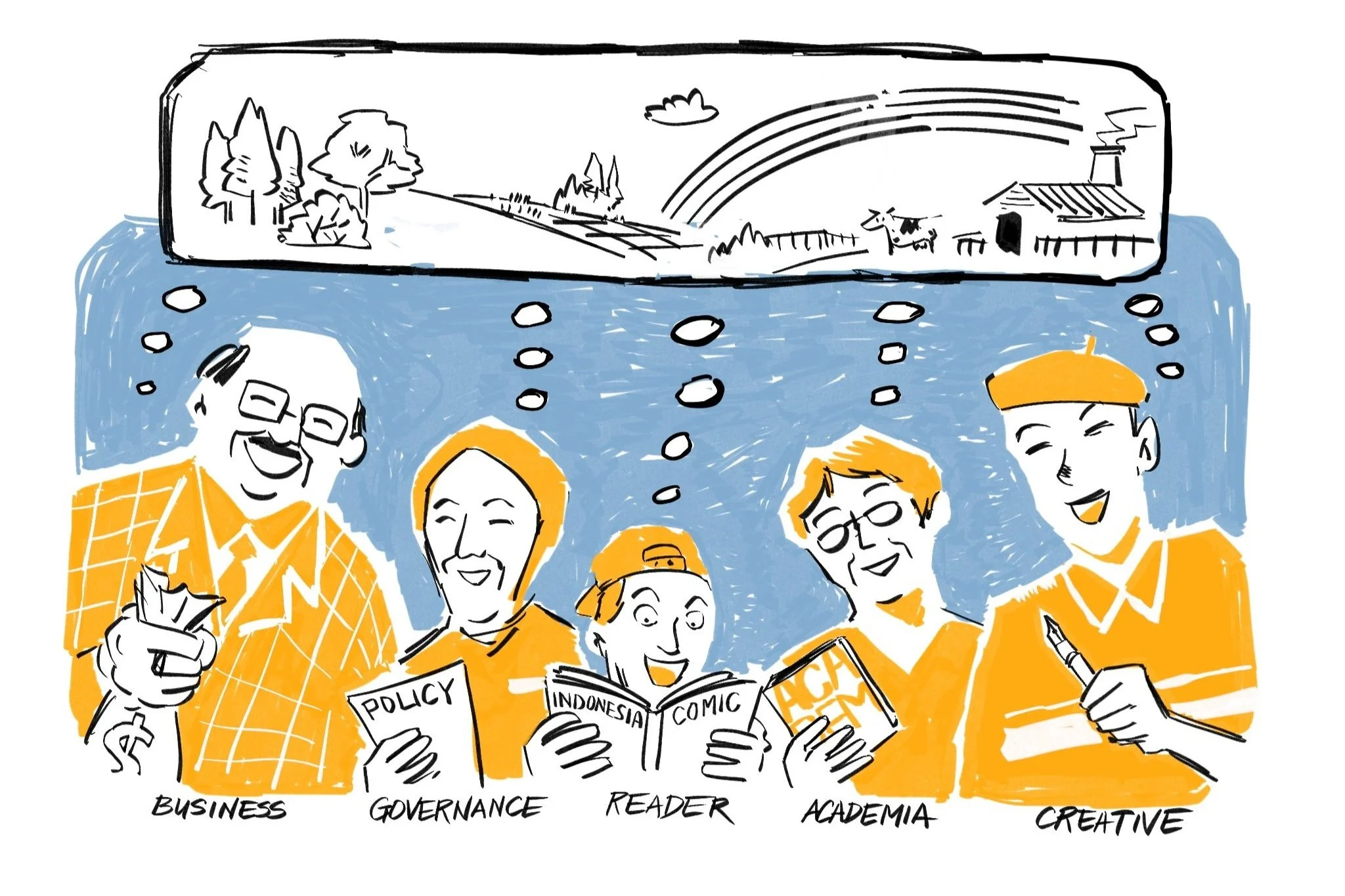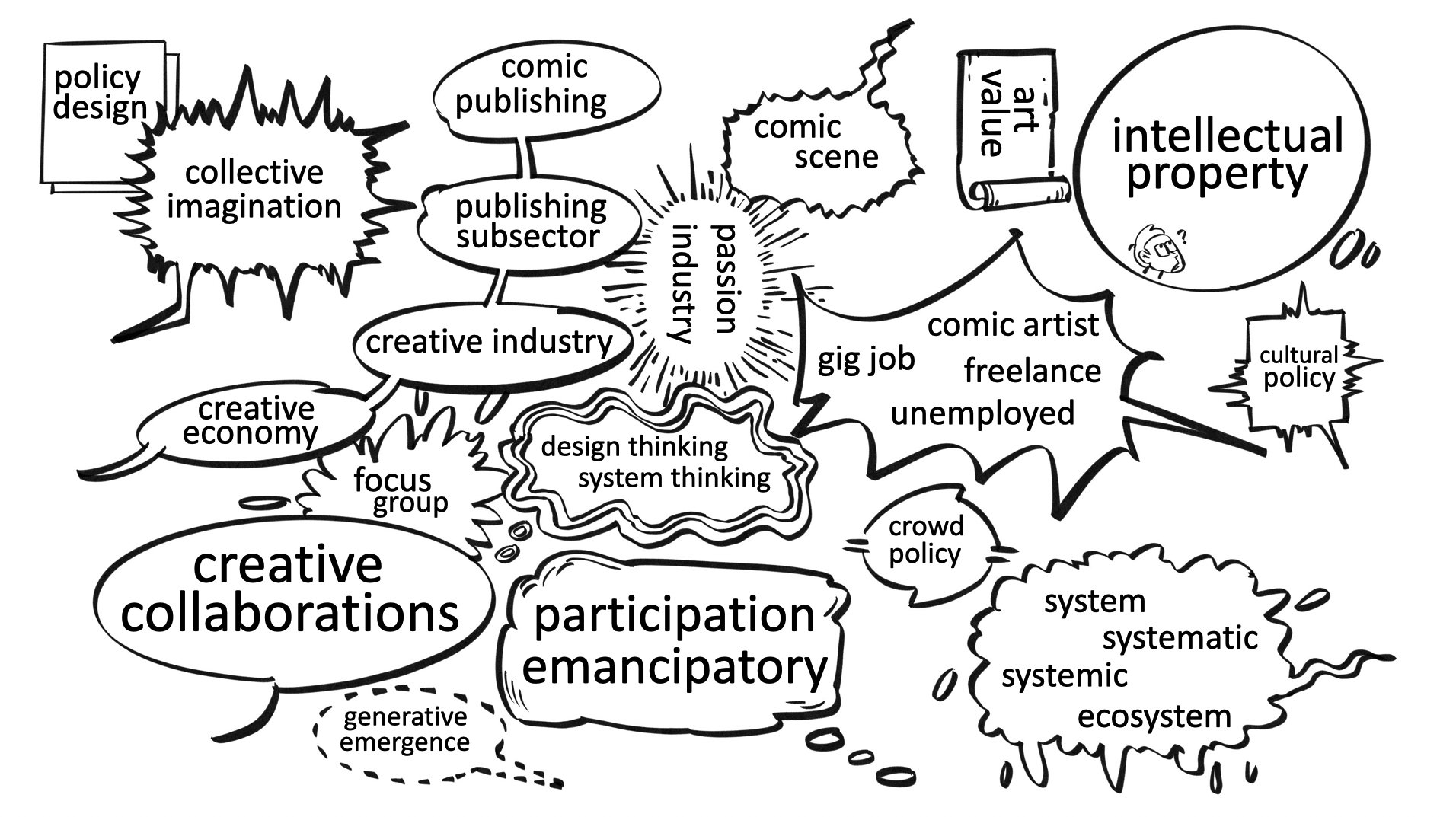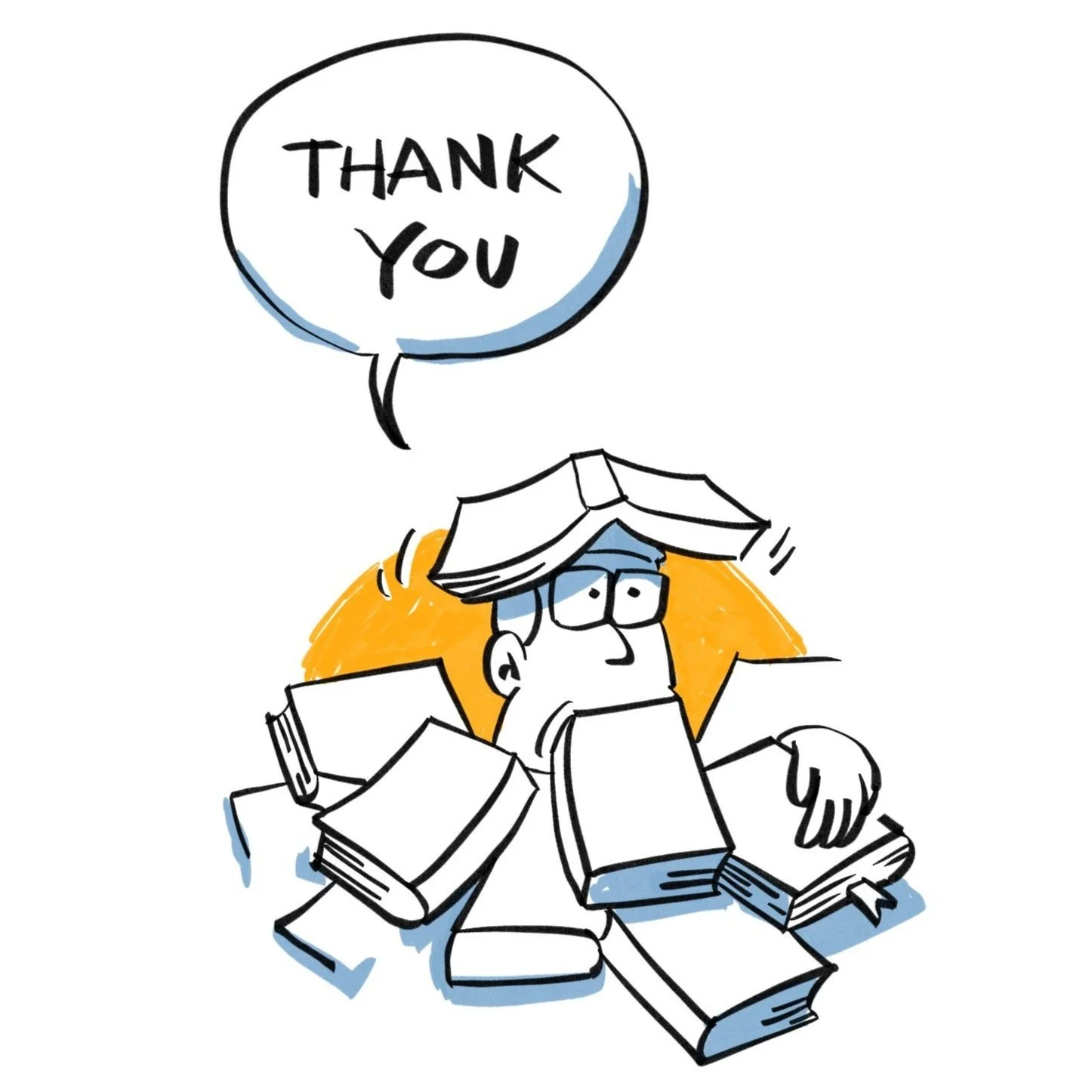let’s brainstorm, collaborate, and envision the future of Indonesian comic industry...
I’m inviting you because I recognize your experience in the comic industry, your influential position, your irreplaceable knowledge, but most of all, your passion and love towards Indonesian comic arts!
I’m on a PhD research journey to explore new understanding of the Indonesian comic industry by convening comic artists in group discussion.
Our goal is to reimagine the future of Indonesian comics industry by identifying, mapping, and representing varying creative practices in Indonesian comic industry as an instrument to system making.
Research result will be used as a bottom-up academic paper to be used as evidence-based data for Indonesian Tourism and Creative Economy Ministry.
Art by Gideon Hutapea. All rights reserved.
why we need a comic industry transformation now?
The Indonesian comics industry has been through colonialism, authoritarianism, industry implosion, bans, stigmas, multiculturalism, and digital revolution. These challenges become a hindrance to building a strong, sustainable industry and a restraint to finding our own identity. Overall, even with government intervention through the ministry, the industry can't generate wealth for artists and the country.
Some of our realities now:
Efforts from the comic artists were not well responded by the other stakeholders.
Creative economy plan fails to develop the comic industry
Big publisher's monopoly, book stores shut downs.
Government attention were inconsistent.
Foreign digital platform not in favor to local comics.
Oportunistic publisher. Foreign comics outnumber local comics publication.
Comics research focus to the aesthetics and socio-cultural aspect
No academically trained comic professionals. All professionals are autodidact.
Uncharted current industry state. No data at all on our industry.
Creative economy plans fail to develop the comic industry.
Creative economy plans are made without proper academic background
Talent drain. Top local artists serves other more mature industry
Comic artists are among the highly educated professionals, but still need a second job to support their comic job. Comic artists must navigate between the creation, production, marketing, and networking to be successful. Comic artists must be a "jack of all trades" to secure enough income to live.
We've been doing the same thing for over 20 years. These realities must change, now.
Art by Gideon Hutapea. All rights reserved.
Art by Gideon Hutapea. All rights reserved.
why your voice matters
s3974278@student.rmit.edu.au
Art by Gideon Hutapea. All rights reserved.
The transformation must starts with a new way to understand the industry. As Drummond-Matthews (2017) and Bonneff (1998) argued, comics have been established in the intersection of history, social, national fads, and cultural movements. As a construction of consciousness, it results from culture in motion.
What we call an industry is a construction of groups of people with activities differ from each other systemically. Creative product is actually how good a product breaks the system.
Means, designing an industry must consider the whole system stakeholders. Cunnigham (2005) mentioned of how creative artist must be put at the core of design effort as their practice dictate how the system will works.
So, your voice as the core of the proposed industry are vital. Your experience, capabilities and wisdom are very needed in this effort.
Art by Gideon Hutapea. All rights reserved.
why focus group?
Focus group is chosen due to its practicality in implementation. The value of the discussion lies in the participant's quality level to bring different perspectives to the table. It's effective to record not only individual creative practice but can also be examined together as group's practice.
The researcher also believes that focus group will stimulate critical comments while also capture the interaction dynamics between the participants. With a good selection of assertive, communictive participants; focus group can empower people from mutual background to develop a deep and productive discussion.
This method has been widely used by both researchers and practitioners across different disciplines (e.g. Lunt & Livingstone, 1996; Morgan, 1996; Wilkinson, 1998).
There are good indications that lead to thinking that individual stories can be transformed into systems maps. This activity aims to map comic artists' unique and diverse creative practices into the system.
Art by Gideon Hutapea. All rights reserved.
the focus group activity
Objective: To understand system complexities in the contemporary context.
Participant: Indonesian comic artists
Number of participants: 6-8 (ideally all representatives present, but minimum of 6 will do)
Time to run: 2 hours.
Total time to run: 2.5 hours (with briefing, introduction, actual discussion, debriefing) Discussion model: semi-structured discussion with pre-planned questions but flexibility to follow the discussion flow.
Date and time will be discussed and decided by participants later.
The focus group activity will be a discussion over 10 questions.
Qustions are categorised of 4: individual practice, community practice and collaboration, ecosystem understanding of challenges, and ecosystem change proposition.
Art by Gideon Hutapea. All rights reserved.
"whats in it for me?"
The researcher cannot guarantee or promise that participants will get any tangible and immediate benefit from this research; however, you may be able to contribute to the production of knowledge towards your profession, your environment that you worked in, and its potency of making a living out of it.
Possible benefits include exploring current design-led practices and the possibilities of professional creative networking opportunities.
Art by Gideon Hutapea. All rights reserved.
"I'm in. What's next?"
I extend my gratitute, If you decided to participate. You will required to fill an online form to
record your identity. This personal information will not be disclosed to the audience and only be identifiable by the researcher for data collection identification purposes.
Please fill this online form. https://bit.ly/IndonesianComicFocusGroup
Once you filled the online form, you will receive PICF (Project Information and Consent Form). PICF will inform about your rights, and risks in the activity. Please ensure you read the PICF well.
You are advised to clarify any parts you don't understand by contacting me by email or phone. I will be happy to explain more.
If you have received the PICF and sent it back, it's done.
Thank you.
CONTACT
I'm open for any further questions regarding the project or any discussion on Indonesian comic. Let's get connected.
+61 411 916 645

